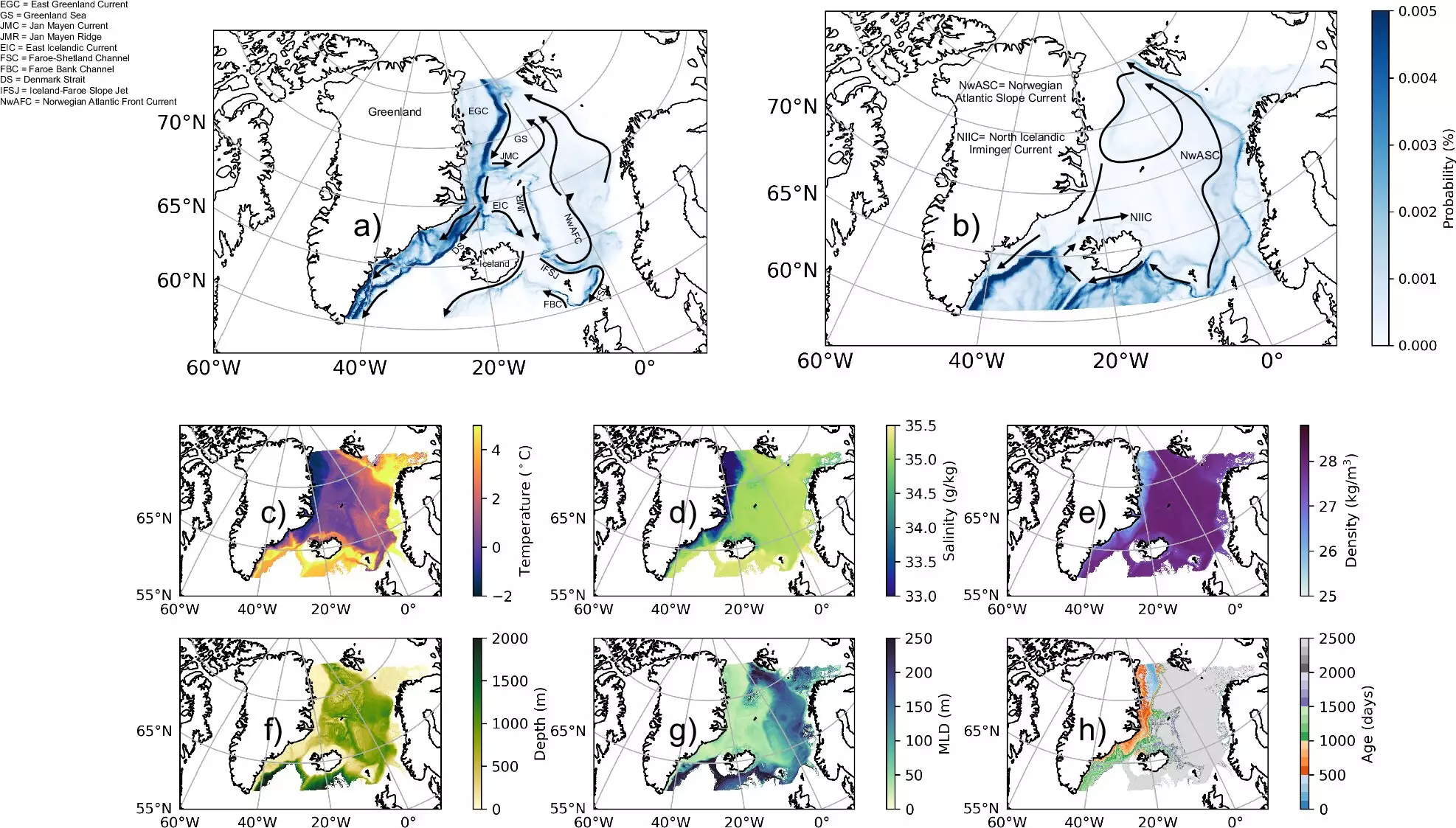A recent study conducted by researchers from various institutions sheds light on the importance of the mixing of Atlantic and Arctic waters in sustaining the Atlantic Meridional Overturning Circulation (AMOC). This circulation system plays a crucial role in regulating Earth’s climate by redistributing heat around the planet. Understanding the mechanisms behind this oceanic mixing is essential for predicting future climate scenarios and potential impacts of climate change.
The AMOC, often likened to a giant ocean conveyor belt, consists of warm water moving from the tropics northward and cold water flowing southward. The lower limb of the AMOC is made up of deep, cold, dense water moving southward in the Atlantic Ocean. The study found that this part of the circulation is comprised of 72% Atlantic waters and 28% Arctic waters. The mixing of these waters plays a significant role in maintaining the strength of the AMOC.
The process of mixing Atlantic and Arctic waters leads to the transformation of warm, salty water into colder, fresher, and denser water. This transformation is responsible for 33% of the overall change, with the remaining 67% attributed to interactions between the ocean and the atmosphere. By better understanding the role of water mixing, researchers can improve their models and predictions of climate change impacts.
Climate models suggest that as the planet warms, the AMOC could slow down, leading to a weakened and shallower circulation system. This scenario could have drastic consequences, including much colder temperatures in Northern Europe and sea level rises along the eastern coast of the United States. Additionally, a weaker AMOC could accelerate climate change by releasing carbon dioxide back into the atmosphere more quickly.
The study emphasizes the need for climate models to accurately represent water mixing processes to provide more accurate predictions of future climate scenarios. Without a thorough understanding of how Atlantic and Arctic waters interact, it is challenging to anticipate the potential impacts of climate change on Earth’s climate and ocean circulation patterns.
The mixing of Atlantic and Arctic waters plays a vital role in sustaining the AMOC and regulating Earth’s climate. By studying this process in detail, researchers can gain valuable insights into how climate change may impact global climate patterns and ocean circulation. Improving climate models to accurately represent water mixing processes is essential for predicting future climate scenarios and understanding the complex interplay between our climate and global ocean circulation processes.


Leave a Reply